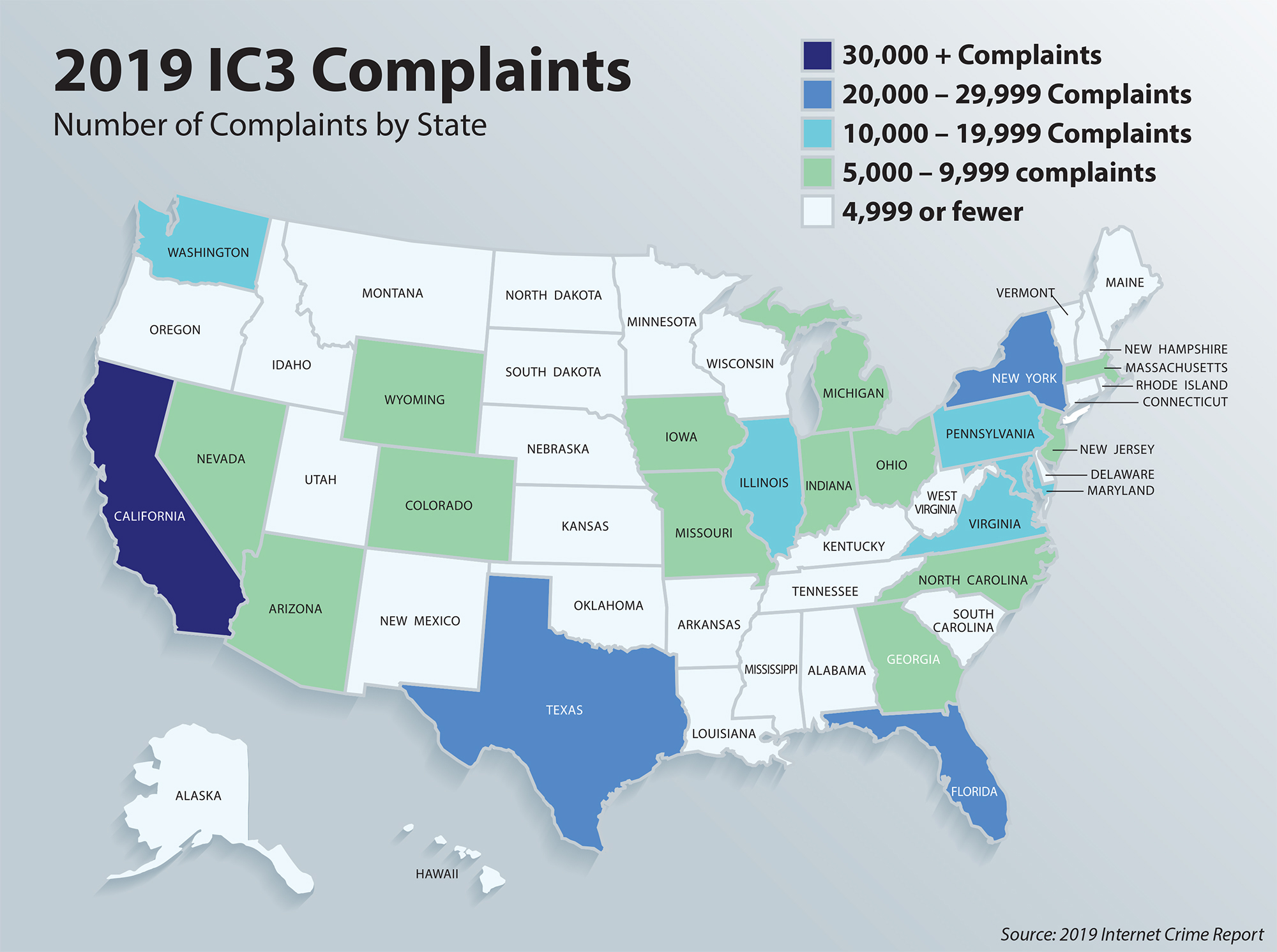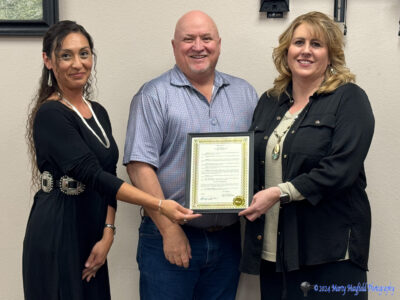Internet-enabled crimes and scams show no signs of letting up, according to data released by the FBI’s Internet Crime Complaint Center (IC3) in its 2019 Internet Crime Report. The last calendar year saw both the highest number of complaints and the highest dollar losses reported since the center was established in May 2000.
New Mexico had 2,037 victims and $17,983,833 in losses in 2019.
In 2018, New Mexico had 2,127 victims for $8,617,772 in losses.
The IC3 report for New Mexico, which includes tables on the specific types of crimes and losses, can be found at: https://www.ic3.gov/media/annualreport/2019State/StateReport.aspx#?s=34
IC3 received 467,361 complaints in 2019—an average of nearly 1,300 every day—and recorded more than $3.5 billion in losses to individual and business victims. The most frequently reported complaints were phishing and similar ploys, non-payment/non-delivery scams, and extortion. The most financially costly complaints involved business email compromise, romance or confidence fraud, and spoofing, or mimicking the account of a person or vendor known to the victim to gather personal or financial information.
Donna Gregory, the chief of IC3, said that in 2019 the center didn’t see an uptick in new types of fraud but rather saw criminals deploying new tactics and techniques to carry out existing scams.
“Criminals are getting so sophisticated,” Gregory said. “It is getting harder and harder for victims to spot the red flags and tell real from fake.”
While email is still a common entry point, frauds are also beginning on text messages—a crime called smishing—or even fake websites—a tactic called pharming.
“You may get a text message that appears to be your bank asking you to verify information on your account,” said Gregory. “Or you may even search a service online and inadvertently end up on a fraudulent site that gathers your bank or credit card information.”
Individuals need to be extremely skeptical and double check everything, Gregory emphasized. “In the same way your bank and online accounts have started to require two-factor authentication—apply that to your life,” she said. “Verify requests in person or by phone, double check web and email addresses, and don’t follow the links provided in any messages.”





